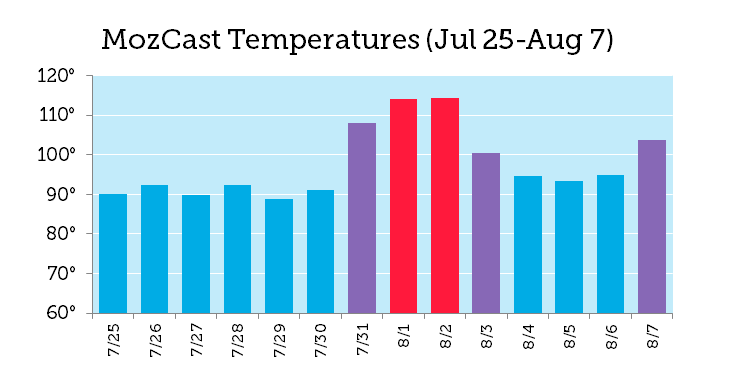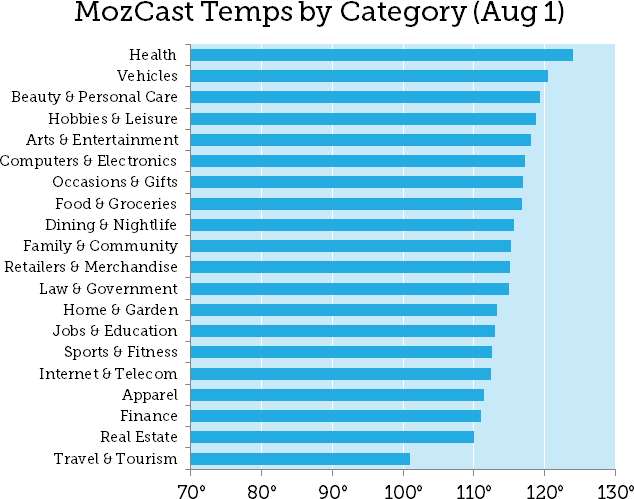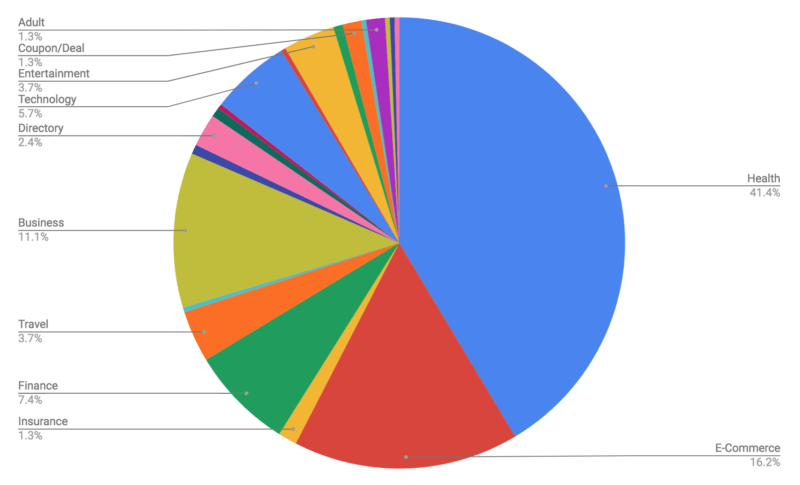On August 1st, Google rolled out what has since been named Google’s Medic Update. This core broad algorithm update has been at the heart of passionate debates within the SEO community as some of them immediately started to face ranking drops. Dr. Pete J.Meyers from Moz even stated, based on the Mozcast tracker, that August 1st had been the hottest days of change in 2018 so far.
This article aims to demystify what is behind Google’s latest algorithm update and to understand how to anticipate penalties.
What is Google’s Medic Update?
MozCast is a monitoring tool that detect “spikes” of search ranking changes on a daily basis. The solution saw a record heat increase of 114 degrees on August 1st and 2nd, correlating with the latest news from Google.

While the “Medic” name implies that the update targeted medical sites, it doesn’t mean they were the only ones affected by ranking drops. The official answer from the Google team was – as usual – generalist:
“As with any update, some sites may note drops or gains. There’s nothing wrong with pages that may now perform less well. Instead, it’s that changes to our systems are benefiting pages that were previously under-rewarded…”.
And
“If you think this isn’t helpful: we’re sorry. It probably is the best advice you’re going to get around this update or any update for that matter. You shouldn’t “just” build great content though. Great content has to fit with the goal of your site, whether that’s informing people, selling products or something else.” (source)
Who’s affected by Google’s Medic Update?
A new update from the Mountain View search engine always means a lot of speculations. Is it focusing on qualitative links? Mobile site speed? Intrusive adverts?
Studies have been run over the last couple of weeks, and while the results can’t be comprehensive as the amount of data to study is tremendous, trends have been identified.
Your Money Your Life
These pages refer to pages focusing on money and life events and that deal with information like:
- Monetary transactions: credit card details, bank account information, etc.
- Personal information: ID details, insurance information, driving license numbers, etc.
- Medical and health information.
- Financial information: pages about finances advice, legal information, etc.
- Life advice: pages about vehicle or home purchase, parenting, etc.
RankRanger shared the results of their studies across different verticals and it results that the finance, health and home goods industries were quite impacted, even at the first position.
Here are the charts shared by the company on Search Engine Land and showing ranking fluctuations by niche for the first, second and third results before and during the update. Overall, health, home goods and gambling were the most impacted.
Moz also shared their data and ended up with similar conclusions:

Finally, Search Engine Roundtable worked on a helpful representation of the websites categories impacted. He collected over 300 domains and analyzed them manually. Almost half of them were in the medical and health space. Here is the pie chart breaking down those categories:

But not only
While, YMYL seems to have been impacted for the most part, websites from other sectors have also been penalized. It is important to remember that these researches are just trends. Glenn Gabe actually shared in his insightful article that other sectors have been impacted:
A lyrics site:

A coupon site:

How to prevent yourself from being penalised?
Google is, as usual, not officially communicating on how you can fix ranking drops. They have said that the best way to be prepared is to focus on E-A-T (expertise, authoritativeness, and trust) which also resonates with a site’s quality and relevance. While it targets a lot of indicators, good content, positive user experience, optimized technical SEO, etc remain central metrics to pay attention to. Recovering from a penalty means you need to implement for the long run and don’t expect shady shortcuts to be efficient.
So, if you have been impacted, don’t wait for the magic to happen. Here are a few steps to help you recover from Google’s Medic Update:
- Read the Quality Rater Guidelines to be aware of all potential problems and recommendations. For instance, Google has recently added the new concept of “beneficial purpose”, meaning that raters are not just asked to rate the quality of the content, but also consider if a page has a beneficial purpose or use for the visitor.
- Audit your site: analyze your site’s performance with a SEO crawler like Oncrawl to get a thorough analysis of your site’s content and performance. Focus specifically on quality content, near duplicates, mobile speed. Then, prepare your masterplan and start fixing.
- Analyze your log files: log file analysis combined with your crawl data is the only way to comprehensively understand how technical SEO issues impact your overall performance. Using Oncrawl Rankings, you can also integrate your Google Search Console data and understand how your technical SEO influences your positions and ranked pages. Optimize your content quality, architecture and performance, see how your crawl frequency and SEO visits increase, and in parallel analyse the final impact on indexing, positions and impressions.
- Keep publishing qualitative, authoritative and trustworthy content answering user’s search intent and expectations. While this creates a satisfying user experience, it will also end up in more branded searches and qualitative links. Producing E-A-T content is a long term strategy rewarded by Google, but the search engine is also quite picky regarding the number of links and mentions from well-known sources.
Have you been caught by Google’s Medic Update? We would love to know more about your experience.

